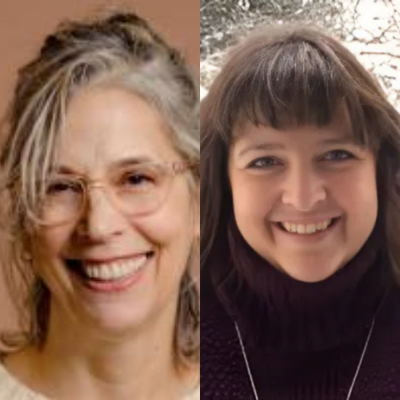
I keep waiting for someone to ask me this. Not even when writing Hold On To Your Kids, over 20 years ago now, did anyone ask me – not my editors or even my most articulate co-writer, Gabor Maté. Perhaps it is obvious and doesn’t require further explanation. On the other hand, the capitalization was a deliberate choice on my part, not just a stylistic preference, and I’d love to have the chance to explain. When looking for other writers in the field of science who also used this convention, I found only a few. I know it is not conventional practice, but still….
Before I indulge myself with giving an explanation that no one is asking for, some clarification is in order about the various meanings of the word ‘nature,’ as only one of the meanings applies here. I am not speaking to the ‘nature’ that refers to the natural world – the plants, animals, weather, and geography that is relatively unspoiled or unaltered by people. When we use ‘nature’ in this way, we are usually referring to that which is neither cultivated or domesticated: forests, meadows, oceans, streams, lakes, wildlife, wind, storms, and so on. Nor am I referring to the word we use when referring to an inherent property or character trait, that is, when it is in someone’s nature to act in a certain way.
Light flower
There are a number of reasons to capitalize a word, of course. Creating a proper noun is first and foremost an act of naming an entity. The most common example is probably the capitalizing of mom or dad in order to differentiate the role from the particular person we are referring to. In this case, what I needed to do is name the life-force responsible for the spontaneous unfolding of potential. In times past, the word ‘development’ referred to this growth force, but this is hardly the case anymore. Development now typically refers to how things are formed over time, or even worse, to the study of the ages and stages of childhood. Lost in this definition is any sense of the inner springs of life, of the spontaneous unfolding of potential. The word ‘development’ has died, as it were; flat-lined one might say. It now speaks to the form of what happens while denuding it of spirit.
To capitalize a word is also to personalize it; that is, to give it life if it doesn’t already possess it. This is rather ironic when it comes to Nature, because it is Life. By that, I mean that it is the essence or at least an aspect of that spontaneous living force that we have never been able to create or duplicate or explain. It is the ultimate mystery of our universe.
Here is the rub: science prefers to ignore what it can’t explain. For example, science stutters even at the thought of love. But to pretend that something doesn’t exist just because we cannot explain it, is rather simplistic on our part, if not downright stupid. So by capitalizing Nature when it refers to the spontaneous unfolding of potential, is just my attempt to correct a great wrong. I am saying sorry to the universe for how we have been so narrow-minded as to deny that something exists simply because we don’t understand it.
To personalize a concept or construct is also to give it agency; that is, a mind and will of its own, so to speak. To not use a language that conveys this agency is to lose sight of the fact that this life-force is the most significant player in the unfolding of the child’s potential. Yes, we are to provide the conditions conducive to this unfolding, but we cannot make it happen. Commanding that our children grow up, as we all know, is futile. We cannot even command growth in ourselves. We can be witnesses to this life-force, however. We can also be assistants. In fact, our role as parents, teachers, and even healers, should be thought of as something more akin to that of a midwife to Nature, who alone does all the moving and heavy lifting. To not recognize the singular role of Nature in this regard is to lose consciousness of this fact, which indeed seems to be the state of both science and society today.
Further to acknowledging its role in the unfolding of potential, to capitalize Nature is to convey a sense of reverence and respect. For those of us developmentalists who truly get what is happening here, it would be remiss to not take a knee, in the traditional meaning of genuflection. To capitalize Nature is my attempt to bow before it, to sit in awe of it, to be a willing servant of it, to be a perennial student of it, to convey my reverence, regard, and respect for it.
These were, and still are, my explanations for capitalizing Nature. They deserve a book, if not a great many books these days, to restore Nature to its rightful place as the life-force it is, the fount of all the inner springs that manifest through our instincts and emotions, constantly yearning for its life-forms to become all they can be.
Although that was my thinking when I first began to capitalize Nature , I had a jaw-dropping moment when reading Braiding Sweetgrass, chapter 5 on ‘Animacy’. Truth be told, I didn’t even know ‘animacy’ was a word. What Robin Wall Kimmerer described as the language situation in science in particular and the English language in general, not only made sense, it reverberated deep within, resonating completely with my experience as a developmentalist in a world that has stripped the language of development of its very soul.
In fact, why I decided to become a psychologist in the first place was the name of the science. I was heading towards medicine – accepted in fact to a number of medical schools – when I realized what I really wanted to do is to make sense of us from inside out. I wanted to understand what moved us to act in the ways we do. The term psychology at that time still meant ‘the study of the spirit;’ that is, ‘that which moves us.’ It is what I wanted and what I embraced.
Imagine my horror to find out that, by the time I got to grad school, psychology had officially become the ‘study of behaviour’ rather than the study of the inner springs of behaviour. I wasn’t about to change course just because they lost the true meaning of the word, so I have continued to make my life calling the study of instinct and emotion. Without this understanding, I couldn’t possibly make sense of kids. When called upon by professional psychological organizations to give keynotes at their conferences, my topic is typically – and unapologetically – on restoring the true spirit of psychology.
Back to animacy. We animals are named for this property of being, this incredible spontaneous life-force that moves us from inside out, that has purpose and meaning, that yearns for the realization of our potential. Why is it that we have lost the language of animacy? Certain cultures and languages have preserved it, to be sure, but not the English language it would seem, or the cultures it has spawned. Perhaps it was preserved in the languages of indigenous peoples because they lived primarily in the context of nature and so evolved languages in tune with nature. We are in danger of losing these indigenous languages and with them the ability to bring to consciousness that which is the very essence of our being.
It should also be at the centre of our consciousness in the raising of our children, especially when even the word raising speaks to this unfolding of potential. Our colonized and urbanized English is failing us. The empirical language of science is also failing us: not in what it says, but in what is doesn’t say that needs to be spoken to. To capitalize Nature then is to return to a language of animacy, a language that starts with acknowledging a life-force that is at the source of all inner springs within us. We must acknowledge this spontaneous growth force, even if we cannot explain it or understand it. We have spent over 400 years under the insidious influence of the so-called fathers of empirical science who threw the baby out with the bathwater. We need this baby back. Rather than compromising science, it simply puts it back where it belongs.
AN ADDITIONAL NOTE FROM GORDON REGARDING THE RE-RELEASE OF HOLD ON TO YOUR KIDS:
Another chapter has been added to Hold On to Your Kids, just in time for the 20th anniversary of its original publication (2004). The newly added chapter is on the timely topic of well-being and how it is deeply rooted in dynamics of attachment. Just as the social media phenomenon could not be explained without a comprehensive model of attachment in general and peer orientation specifically (thus requiring the addition of two additional chapters for the 10th anniversary release of the book), so too is the case with the current crisis of well-being in our kids. Without the knowledge of how children are meant to be embedded in cascading care, today’s experts are jumping to the wrong conclusions and advocating policies and programs that are likely to fail, if not make matters worse.

